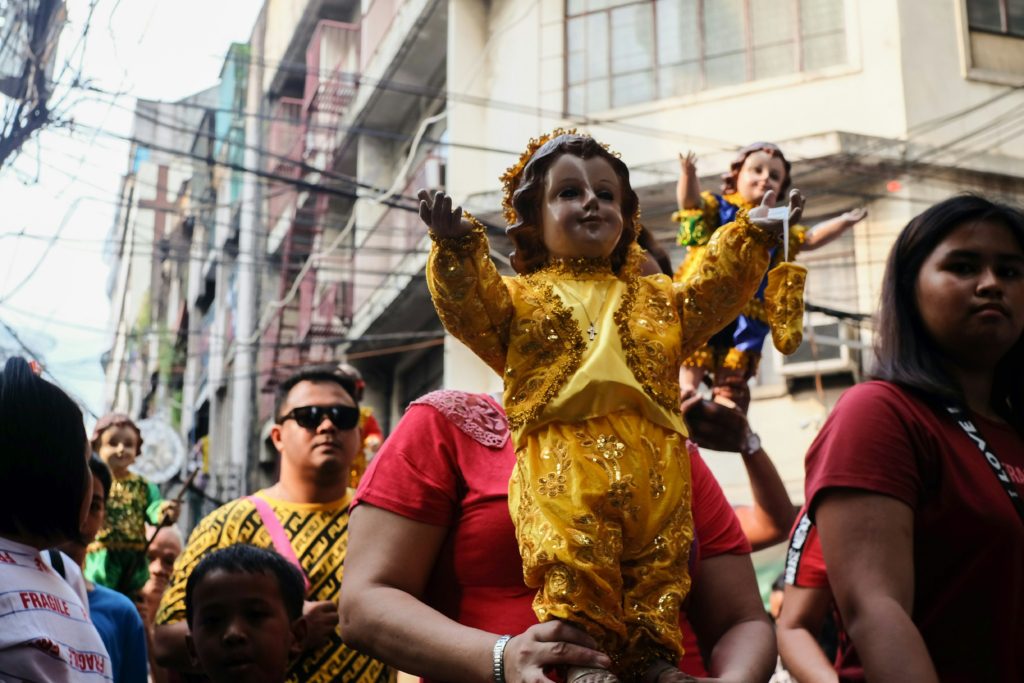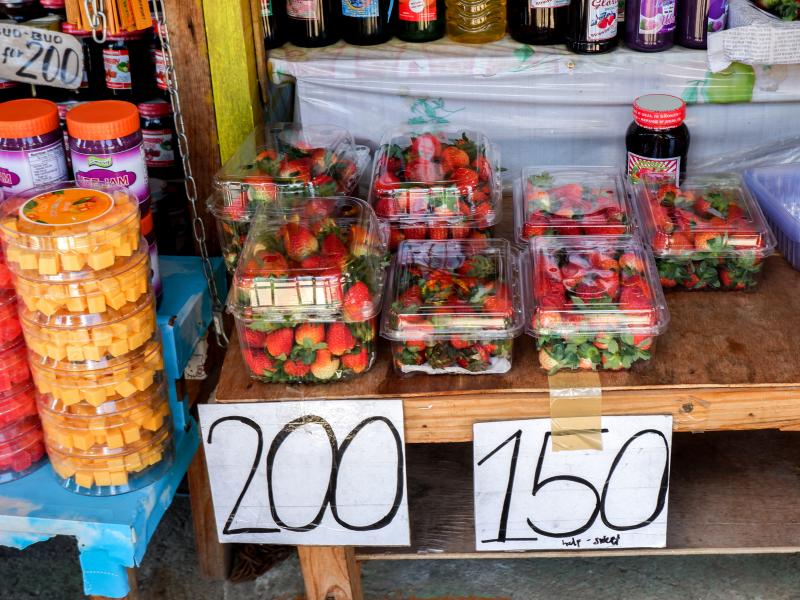Philippines Backpacking Dos:

How to address people
Filipinos often use “Sir” and “Ma’am” or “Madam” as a term of respect especially in the workplace. Filipinos give importance to titles of respect, and considers rude to address anyone older, or with a higher rank, by just their first name.
Foreigners may use familial words like “Tita” (Aunt) , “Tito” (Uncle) for the older relatives of your Filipino friends. For the regular guy on the street, “kuya” (brother) or “ate” (sister) would be acceptable. This is also applicable to your — taxi drivers, waitresses, salesgirls, security guards, etc.
When talking to someone older than you, you may use the word “Po” as a sign of respect, such as, “How are you, po?”
Be amiable, friendly and polite
Filipinos are by nature very friendly. Being friendly will earn you best friends. They also enjoy a good laugh. According to the 2024 World Happiness Report, Filipinos rank 53rd in the world and are the 2nd happiest people in the Southeast Asia region. They can take anything in stride even in the most trying circumstances. Take time to laugh with them and you’ll see their genuine appreciation.
Filipinos enjoy making fun of one another, and it is normal for friends to engage in verbal jousting — a little jab at your faults. Be careful not to lose your temper. Engage in the “fun” word war instead of seriously defending yourself. A sense of humor and a little humility will help you get along with the locals. Filipinos dislike arrogance and pretension.
Don’t forget to say Thank You for the kind gestures you receive from your Filipino friends. These hospitable folks will definitely find your appreciation gratifying.
And when you see people, either grown ups or kids wave to you, acknowledge them and simply wave back.

Look up your local friends
If it’s your second visit or more, do check out your old Filipino friends. If you’ve kept in touch, let them know you’re coming. They will always do all they can to extend a helping hand — they’ll take you around town and play tour guide for you and even treat you to meals. If they have plans for you that you’re not interested in or are uncomfortable, graciously decline and thank them, and just say you have to be somewhere else.
Join In the fun
Filipinos like many other Asian nationalities are fond of dancing and singing, they also have an intense sense of fun. If there is a tour, activity, party or dancing to be done it is best if you join in the fun, sitting on the outside looking in will drive concerned looks from your guests who will think you are not having a good time. If in doubt – join in.
Do keep an open mind
Filipinos have a number of customs, beliefs and habits in their culture. To name a few, there is the infamous “Filipino time” — usually late than the agreed upon time, especially in informal situations.
Filipinos are bound by a mix of religion and superstition. Majority of the people are Catholic with some adhering to folk beliefs and traditions. This is especially true in the rural areas of the country.
Some of these beliefs may seem impractical but do keep an open mind and just observe with great respect and appreciation for the uniqueness of this culture.

Things to not do in the Philippines
As in any other country, travelers will encounter some isolated cases of unpleasant experience. Generally, the Filipinos are accommodating, friendly and nice to guests. However, it is always better to take precautions and be aware of some safety measures.
Don’t forget to be safe – Safety advice for the Philippines
It would be safer not to travel alone. A Filipino companion is much safer than a fellow tourist. As a foreigner, you will easily get the attention of people and some of them may not be as friendly as the others. Opportunistic crimes are common but can easily be avoided if you take proper precautions.
When walking, especially in crowded places such as public markets or parks, remember the following tips:
- Hold on to your bag and keep them close to you. Never leave it unattended.
- Do not show off cell phone, tablet, or any other electronic gadget.
- Do not put your wallet in the rear pocket.
- Keep your valuables safe and if you’re staying at a hotel, do not leave them in your room.
- Walk in groups especially if going out at night
- Stay clear from local groups involved in heavy drinking sessions. This usually spells trouble.
- When a stranger approaches you and engages you into a conversation, be wary. This may lead to being robbed. There are cases when tourists were invited for drinks in the name of hospitality. Be careful. Your beer may be laced with a sedative and when you wake up, your money and valuables will be gone.
- Don’t go into congested neighborhoods unless you have a local friend with you.
Don’t be aloof – Many questions show interest in you
The Filipino greeting of “Kumain ka na ba?” or “Have you eaten?” have surprised foreigners for this concern regarding your eating habits. But this is just small talk and merely a sign of friendliness on their part which is just an equivalent of saying, “How are you?.”
This small talk is common in the Philippines where people tend to ask personal questions. So prepare yourself to be pleasantly interrogated with questions such as, where are you from, why are you in the Philippines, are you married, how many children do you have, etc. This may sound intrusive to a foreigner but for the Filipino, it is sign that they are interested in your presence and that you are welcome.
Don’t lose your cool – You are likely to get punched
Like in most Asian countries, raising your voice and showing outward frustration may be taken the wrong way. Aggression from a foreign visitor is not acceptable. Keep your cool. If the reason for your frustration is about over charging for goods or services, and it just means a couple of dollars, let it go. It’s not worth the hassle. The Philippines is still a relatively cheap place to visit.
Don’t be too critical – No one likes an asshole
If you have some problems regarding the place or the people, keep it to yourself. Don’t say anything negative even to your Filipino friend. Despite its flaws (like any country for that matter), Filipinos have a strong sense of nationalism.
Don’t forget the pasalubong – It’s critical

When you’re visiting a Filipino home and you’ve just come from abroad or even out of town, it would always be nice to bring a “pasalubong” — small gifts or token from the place you’ve been. People always ask for pasalubong even among themselves.
Don’t stare at strangers – it is very rude
There have been cases when fights break off after a single eye-to-eye contact between males. Staring is considered rude and a challenge to some boys, especially the youth. This often happens when the person you are staring at, is with his group of friends or “barkada” and a fight with one member is a fight with the barkada.
In Summary
Essentially, Filipino culture and the practice of traditions depend on the circles you are moving around in. Like any other country, there are the sophisticated, well-traveled groups and there are the conservative, highly traditional folks. It is best to observe behavior before you act.
The Philippines is generally a safe place, but keeping your wits about you makes sense, this is the good advice for any country you visit, politeness is valued highly in most Asian societies, a smile and a bow go a long way in all situations, as do the words please, and thank you.
Helpful articles and blog posts on Filipino culture in the Philippines
We only recommend writers and blogs that we read regularly and believe will deliver substantial value to our readers. The following is our top picks of articles on Philippine culture that we think are worth reading:
- Philippine Culture, From a Confused American’s Perspective by Nathan Allen
- The Many Faces of the Filipino by Jake
- First impressions of the Philippines by Benny Lewis
- The Filipino Stereotypes by The Human Breed Blog
Do you have an awesome link to a relevant well written article that should be included here? If so, hit us up on Twitter by following and messaging us the link. Looking for the best budget stays in the Philippines? Check out our guide to the Philippines for further information.
How Did We Do?
Is the article “Philippines Culture & Politeness Advice For Backpackers” useful? If so, please share and like this post, as it helps other travelers find information. Many thanks! You can follow us on Twitter or Facebook for further updates!


